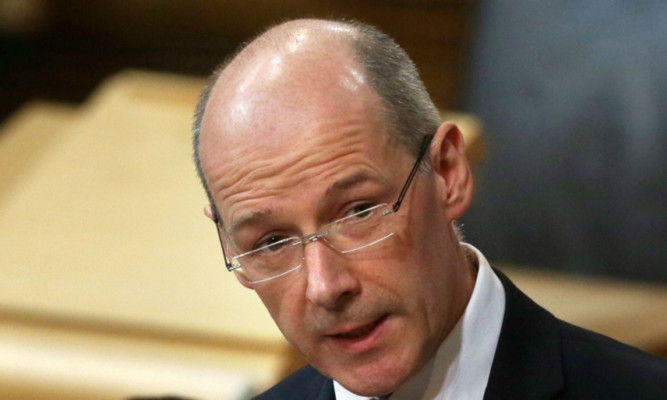Deputy First Minister and Finance Secretary John Swinney yesterday called for further devolved powers on business to help generate growth, secure a better economic position and attract higher levels of investment for Scotland’s businesses.
He said Scotland’s track record on devolved policies shows that an approach tailored to local circumstances would give Scotland’s businesses the best economic position.
At the British Chambers of Commerce conference in London, he said Scotland’s performance has improved across a range of indicators since 2007.
He believed this can be credited to devolved policies tailored to the best Scottish approach, rather than a UK-wide model.
Scotland’s output per head ranking in the UK increased from fourth to third between 2007 and 2013, now ranking behind only London and south-east England.
He also revealed that:
* The value of Scotland’s international exports has increased by around 40% between 2007 and 2013 from £20 billion to £27.9 bn.
* In each year since 2007 the Ernst & Young Attractiveness Survey has found that Scotland was ranked in the top two UK regions outside London for foreign direct investment.
* Business investment in research and development has increased by 29% since 2007.
* The Scottish employment level is at a record high, and Scotland remains the best-performing UK nation on all headline labour market indicators.
The Scottish Government is in negotiations on further devolved legislation on the back of the Smith Commission report, and believes that all of the recommendations should be delivered in full by the UK Government.
These include devolution of air passenger duty, enhanced borrowing powers and devolution of the work programme.
Mr Swinney continued: “It is good for the economy to increase the devolved powers, and to allow us to provide a Scottish-specific approach to help generate growth, secure a better economic position and attract higher levels of investment.
“Enhancing the powers of the Scottish Parliament is key in enabling us to tackle the geographic disparity across the UK.
“Increased powers over air passenger duty, the ability to retain highly skilled graduate students from around the world, and a high-speed rail line between Scotland and London are just some of the additional powers that could make a real difference.”
He said many business organisations wanted to see more powers transferred such as minimum wage, research and development credits, and capital gains tax. These were key levers which could benefit the Scottish economy and boost Scottish business.
He added: “The success of our business sector underpins the prosperity and wellbeing of every community in Scotland not the austerity measures imposed upon us by the UK Government.
“There is no doubt that Scotland is a entrepreneurially strong, innovative and attractive place for companies to invest in and do business with, but we are committed to see our business sector achieve even more.”
